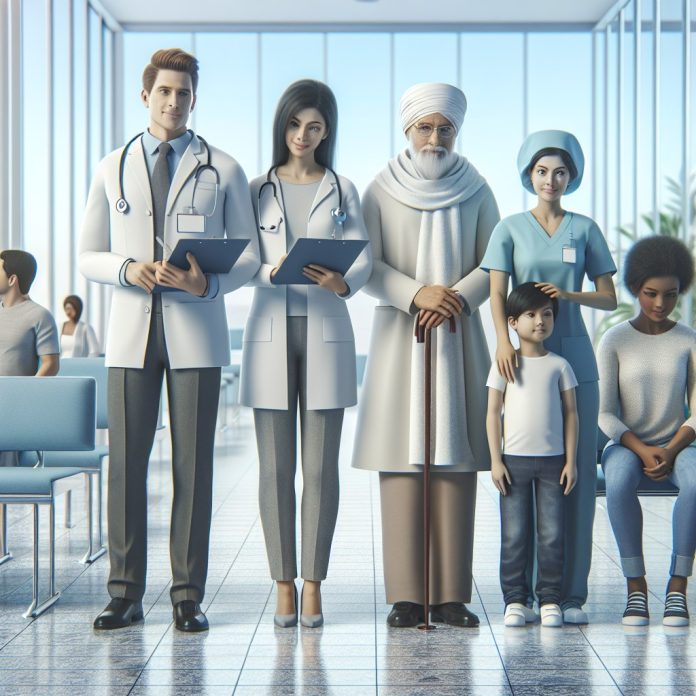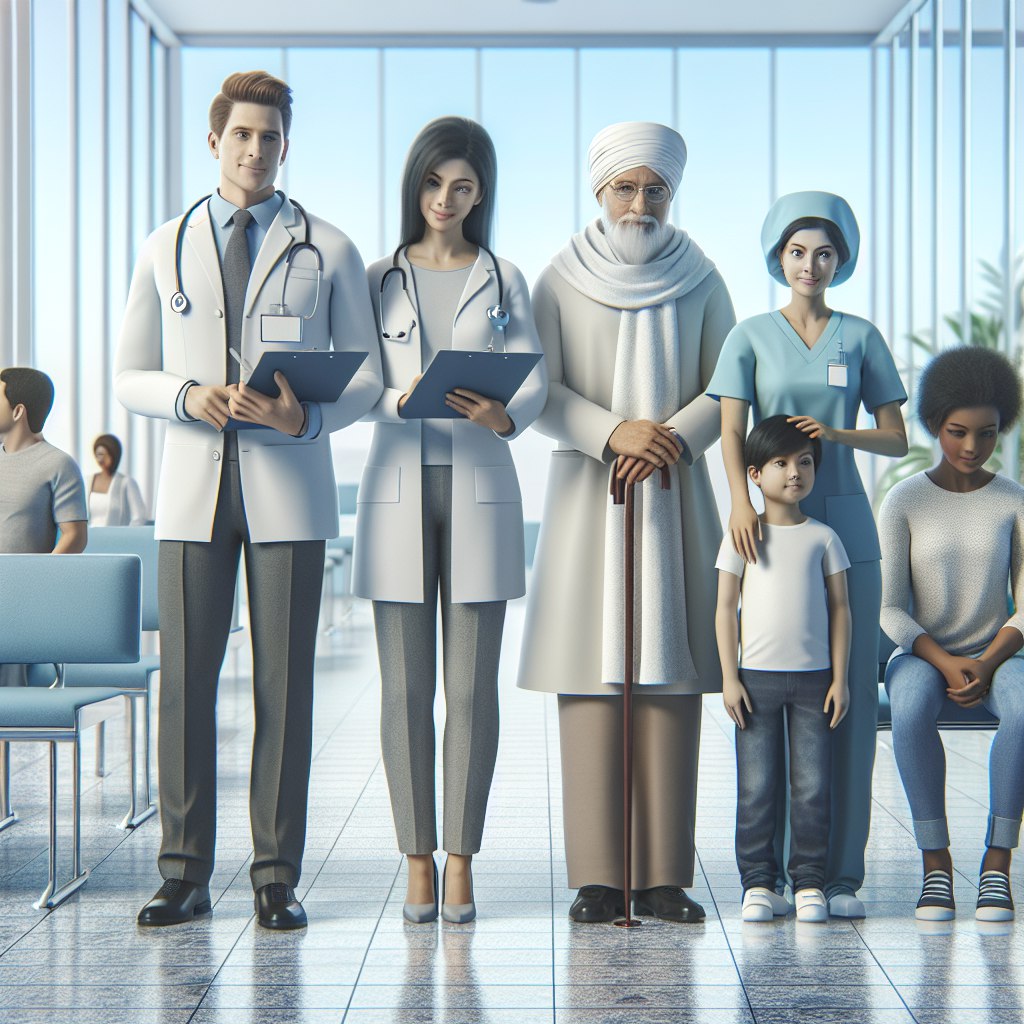
📋 Introduction
In an ever-evolving landscape of healthcare services, “One Healthcare” emerges as a transformative approach, streamlining patient care and enhancing overall health outcomes. This article delves into the concept of One Healthcare, exploring its benefits, implementation strategies, and the impact it has on the healthcare industry. With the integration of advanced technologies and a patient-centered focus, One Healthcare is set to revolutionize the way we approach health services.
🌟 Understanding One Healthcare
One Healthcare is an innovative model designed to integrate various aspects of health services into a cohesive and efficient system. It aims to provide comprehensive, coordinated care that addresses all patient needs under one unified framework.
1. Definition of One Healthcare
- Integrated Care: One Healthcare integrates primary care, specialty services, and mental health care to ensure a holistic approach to patient well-being.
- Patient-Centered: This model prioritizes patient needs, emphasizing personalized care plans and improved patient-provider communication.
2. The Evolution of Healthcare Models
- Traditional vs. Integrated: Unlike traditional healthcare models that often operate in silos, One Healthcare breaks down barriers between different healthcare services, promoting seamless collaboration among providers.
- Technological Advancements: The integration of electronic health records (EHRs), telemedicine, and health information exchanges (HIEs) has paved the way for the successful implementation of One Healthcare.
📱 Key Features of One Healthcare
One Healthcare encompasses several key features that distinguish it from traditional healthcare models. These features work together to provide a more efficient, effective, and patient-focused approach to healthcare delivery.
1. Comprehensive Care Coordination
- Team-Based Approach: Healthcare professionals from various disciplines collaborate to create and execute comprehensive care plans tailored to each patient.
- Continuity of Care: Patients receive continuous care throughout their treatment journey, minimizing gaps and ensuring all health needs are addressed.
2. Advanced Health Technologies
- Electronic Health Records (EHRs): EHRs enable real-time sharing of patient information among providers, improving coordination and reducing errors.
- Telemedicine: Virtual consultations and remote monitoring enhance access to care, particularly for patients in remote or underserved areas.
3. Patient Engagement and Empowerment
- Patient Portals: Secure online portals allow patients to access their health information, schedule appointments, and communicate with providers.
- Personalized Care Plans: Providers develop individualized care plans based on patient history, preferences, and specific health needs.
4. Preventive and Holistic Care
- Preventive Services: Emphasis on preventive care, including screenings, immunizations, and wellness programs, to maintain overall health and prevent diseases.
- Holistic Approach: Addressing physical, mental, and social health needs to ensure comprehensive well-being.
🌟 Benefits of One Healthcare
Implementing One Healthcare offers numerous benefits for patients, healthcare providers, and the overall healthcare system. These advantages contribute to improved health outcomes and greater efficiency in healthcare delivery.
1. Improved Health Outcomes
- Early Intervention: Proactive management of health conditions through preventive care and early intervention reduces the risk of complications.
- Holistic Health: Addressing all aspects of health, including mental and social factors, leads to better overall well-being.
2. Enhanced Patient Experience
- Personalized Care: Customized care plans and continuous communication enhance patient satisfaction and trust in healthcare providers.
- Convenience: Streamlined processes and easy access to health information improve the convenience of healthcare services.
3. Increased Efficiency and Cost Savings
- Reduced Redundancies: Coordinated care minimizes unnecessary tests, procedures, and hospitalizations, leading to cost savings.
- Efficient Resource Utilization: Optimized use of healthcare resources ensures timely and effective care delivery.
4. Empowered Healthcare Providers
- Collaborative Environment: Integrated care teams foster a collaborative environment, enhancing job satisfaction and professional growth.
- Access to Comprehensive Data: EHRs and other technologies provide healthcare providers with comprehensive patient data, aiding in informed decision-making.

🖥 Implementing One Healthcare
Successful implementation of One Healthcare requires careful planning, collaboration, and investment in technology and infrastructure. The following steps outline the key components of implementing this model.
1. Establishing a Unified Framework
- Integration of Services: Merge primary care, specialty care, and mental health services into a single, cohesive system.
- Collaboration Agreements: Develop collaboration agreements among healthcare providers to facilitate seamless coordination and information sharing.
2. Leveraging Technology
- Adopting EHRs: Implement comprehensive EHR systems to enable real-time data sharing and improve care coordination.
- Expanding Telemedicine: Invest in telemedicine platforms to provide virtual consultations and remote monitoring.
3. Fostering Patient Engagement
- Educating Patients: Educate patients about the benefits and functionalities of patient portals and other digital tools.
- Encouraging Participation: Encourage patients to actively participate in their care plans and preventive health measures.
4. Training and Support for Providers
- Professional Development: Provide ongoing training and support for healthcare providers to ensure they are proficient in using new technologies and collaborating within integrated care teams.
- Resource Allocation: Allocate resources to support the transition to One Healthcare, including staffing, technology, and infrastructure.
🌟 Challenges and Future Directions
While One Healthcare offers significant benefits, there are challenges to consider and future opportunities for growth and improvement.
1. Overcoming Barriers to Integration
- Cultural Resistance: Address cultural resistance to change within healthcare organizations through education and stakeholder engagement.
- Technical Challenges: Overcome technical challenges related to EHR interoperability and data security.
2. Enhancing Accessibility
- Equitable Access: Ensure equitable access to One Healthcare services for all populations, including those in rural and underserved areas.
- Language and Literacy Support: Provide language and literacy support to ensure all patients can effectively use digital health tools.
3. Future Innovations
- AI and Machine Learning: Explore the use of artificial intelligence and machine learning to enhance predictive analytics and personalized care.
- Blockchain Technology: Investigate blockchain technology for secure and transparent health information exchanges.
🌟 Conclusion
One Healthcare represents a significant advancement in the way healthcare services are delivered and managed. By integrating various aspects of care, leveraging technology, and focusing on patient engagement, One Healthcare has the potential to revolutionize the healthcare industry. As healthcare organizations continue to adopt and refine this model, patients can look forward to more personalized, efficient, and effective care, leading to improved health outcomes and greater overall well-being.



















